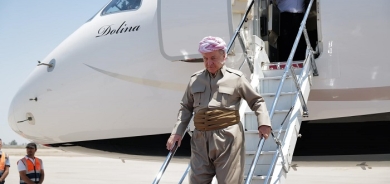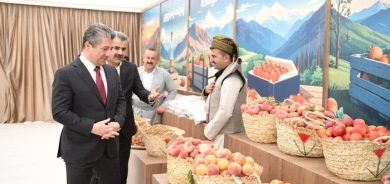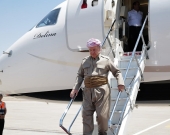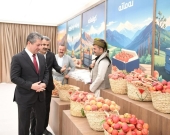Achievements of the Ninth Cabinet of the Kurdistan Regional Government in Building a Stronger Kurdistan

The ninth cabinet of the Kurdistan Regional Government (KRG), led by Prime Minister Masrour Barzani, has made significant strides in implementing numerous projects across various sectors in the Kurdistan Region.
These initiatives have revitalized and reinforced the region's infrastructure, promoting economic growth, social well-being, and overall prosperity. This report provides an overview of the achievements of the ninth cabinet, highlighting key projects, services, and investments undertaken during its four-year tenure.
Infrastructure Development: Under the leadership of the ninth cabinet, the KRG has successfully executed 3,379 essential projects with a total cost of 12 trillion 40 billion 667 million dinars. These projects encompass a wide range of sectors, including roads, water and sewerage, agriculture, electricity, education, and basic services. The strategic planning and execution of these projects have ensured equitable development and resource allocation based on specific needs and population distribution in the provinces and autonomous administrations.
Region-Specific Projects: In Sulaimaniyah, Halabja, Garmiyan, and Raperin areas, which are home to a population of over two million people, a total of 195 projects worth 4,234,685,000,000 dinars have been implemented. These projects have significantly improved the quality of life and addressed pressing needs in these local communities.
Similarly, Erbil, Duhok, Soran, and Zakho provinces, with a population of 3,804,742 people, have witnessed the successful completion of 2,184 projects. These initiatives have not only enhanced the region's infrastructure but also positively impacted the lives of residents across various sectors.
Electricity and Renewable Energy: The ninth cabinet has made notable progress in the electricity sector. The Kurdistan Region currently generates 12 megawatts of electricity from solar energy, and under the cabinet's administration, overall electricity production has increased significantly by 702 megawatts. This increase in electricity production has contributed to meeting the region's growing energy demands.
Digital Transformation and Public Services: To expedite public affairs and minimize routine tasks, the ninth cabinet has implemented electronic platforms to provide 28 services directly to the public. This digital transformation has streamlined administrative processes and enhanced the efficiency of public service delivery.
Water Management: Under the ninth cabinet's supervision, the construction of four strategic dams and the renovation of 22 water ponds have taken place. These water management projects have helped improve water availability, irrigation systems, and overall water resource management in the region.
Employment and Investment: During its four-year tenure, the ninth cabinet has made significant contributions to employment opportunities. It has employed 138,000 workers and generated approximately 100,000 job opportunities, fostering economic growth and reducing unemployment rates in the Kurdistan Region.
Furthermore, the cabinet has issued 277 investment permits, representing a capital investment of approximately 13.5 billion dollars. These investments have attracted local and foreign businesses, stimulating economic development and creating avenues for sustainable growth.
The achievements of the ninth cabinet of the Kurdistan Regional Government reflect its unwavering commitment to advancing the Kurdistan Region's development and ensuring equal access to essential services for all citizens. Through the successful implementation of thousands of projects, the cabinet has revitalized infrastructure, improved public services, promoted renewable energy, and generated employment opportunities. These efforts have played a crucial role in building a Stronger Kurdistan, fostering economic growth, and enhancing the overall well-being of the region's residents.















